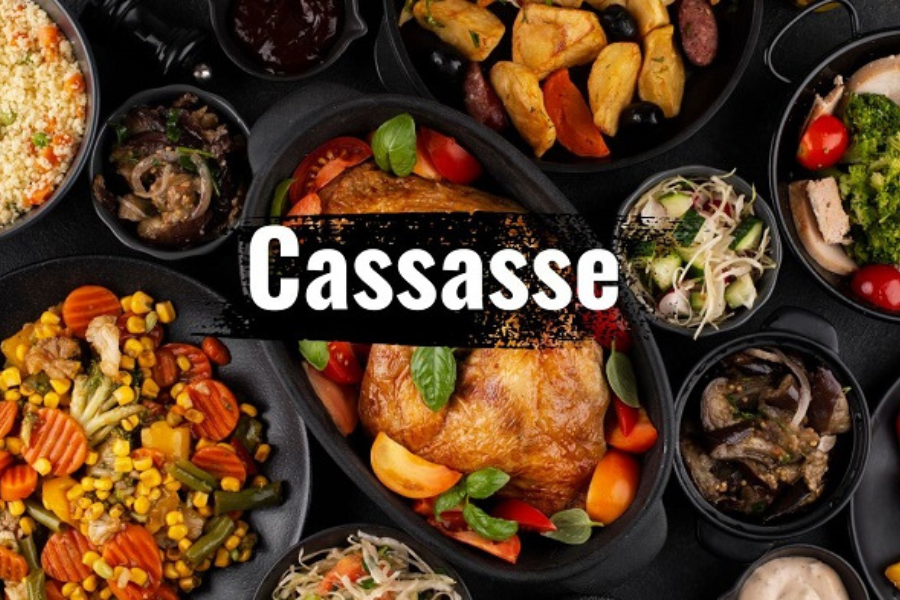Introduction
Cassasse typifies in excess of a simple dish; it addresses an energetic festival of Caribbean legacy, filling in as a demonstration of the rich social embroidery woven all through the islands. Saturated with history and custom, Cassasse has been affectionately gone down through ages, immovably setting up a good foundation for itself as a valued culinary staple.But what exactly defines Cassasse, and what makes it so integral to Caribbean culture? Let’s delve into the tale of Cassasse, delving into its origins, preparation methods, and lasting legacy.
The Background of Cassasse in History
Beginnings OF CASSASSE
The account of Cassasse starts with the native people groups of the Caribbean, who previously used the neighborhood fixings that would turn into the foundation of this dish. The name “Cassasse” is accepted to be gotten from these early networks, however its careful historical background stays a subject of discussion among history specialists.
THE Impact OF Native Individuals
The native Arawak and Carib clans were quick to develop and utilize the fixings key to Cassasse. They depended vigorously on root vegetables, spices, and flavors that were bountiful in their current circumstance. These early recipes established the groundwork for what Cassasse would turn into.
EUROPEAN AND AFRICAN Commitments
With the appearance of Europeans and the overseas slave exchange, the Caribbean culinary scene started to change. African slaves brought new cooking procedures and fixings, which mixed with the current practices. European colonizers likewise presented new components, making a remarkable combination that portrays Cassasse today.
Components of Capsule
KEY Fixings
The core of Cassasse lies in its fixings. Conventional recipes frequently incorporate root vegetables like sweet potatoes, cassava, and yams, alongside different flavors like thyme, garlic, and allspice. Meat, especially pork, is normally utilized, however there are numerous varieties.
Varieties IN Fixings BY District
Every Caribbean island has its own interpretation of Cassasse, impacted by neighborhood accessibility and social inclinations. For example, in Jamaica, Scotch hood peppers could add a searing kick, while in Trinidad and Tobago, you could find the option of coconut milk for a more extravagant character.
Significance OF New AND Nearby Fixings
One consistent across all varieties of Cassasse is the accentuation on new, privately obtained fixings. This guarantees the best flavor as well as supports nearby agribusiness and customs.
Conventional Techniques of Preparation
COOKING Methods
Cassasse is customarily pre-arranged utilizing slow-cooking strategies, which permit the flavors to merge together wonderfully. This could include stewing in a pot over a wood fire, a strategy that bestows a particular smoky flavor.
Apparatuses AND UTENSILS Utilized
Conventional apparatuses like huge iron pots and wooden mixing paddles are much of the time utilized in the readiness of Cassasse. These devices are gone down through ages, adding to the dish’s social importance.
Job OF People group IN Arrangement
In numerous Caribbean people group, making Cassasse is a shared action. Families and neighbors meet up to get ready enormous groups, especially during celebrations and festivities, supporting social bonds.
Recipes for Cassasse
Exemplary CASSASSE RECIPE
An exemplary Cassasse recipe could incorporate the accompanying advances:
- Fixings: Sweet potatoes, cassava, yams, pork, garlic, thyme, allspice, salt, pepper, and coconut milk.
- Planning: Strip and cleave the root vegetables. Marinate the pork with flavors.
- Cooking: In an enormous pot, sauté garlic and thyme, add the pork and earthy
colored it. Add the vegetables and coconut milk, then stew until everything is delicate and flavors are all around joined.
CURRENT VERSIONS OF CLASSIC RECIPES
Contemporary chefs are reimagining Cassasse by infusing it with nutritious ingredients such as quinoa and kale, enhancing its health benefits. Others are experimenting with fusion by integrating components from diverse culinary traditions, creating innovative dishes that honor the original recipe while introducing novel flavors.
VEGAN AND VEGETARIAN VERSIONS
For those following a plant-based diet, Cassasse can undoubtedly be made vegetarian by supplanting meat with vegetables or vegetables as the essential protein source. Utilizing coconut milk and different flavors, the dish holds its rich flavor and fulfilling taste.
Everyday Cassasse in Life
Job IN Ordinary Dinners
Cassasse isn’t only held for unique events; it’s a staple in numerous Caribbean families. Its generous fixings make it an ideal dinner for any season of day, giving food and solace.
CELEBRATORY AND Happy Events
During occasions and celebrations, Cassasse becomes the overwhelming focus. It’s not unexpected arranged in huge amounts and divided between loved ones, representing solidarity and harmony.
Imagery AND Social Importance
Cassasse addresses something beyond food; it’s an image of social personality and legacy. Planning and sharing this dish is a way for Caribbean individuals to interface with their underlying foundations and pass customs down to people in the future.
Nutrition Facts Regarding Cassasse
Medical advantages
Cassasse isn’t just flavorful yet additionally loaded with supplements. Root vegetables give fundamental nutrients and minerals, while the utilization of flavors can have calming and cell reinforcement properties.
Wholesome Parts
A regular serving of Cassasse is plentiful in carbs, fiber, and nutrients like An and C. The consideration of meat or vegetables adds protein, making it a reasonable and feeding dinner.
Legends AND Realities
There are numerous legends about Cassasses, for example, it being excessively weighty or unfortunate. As a general rule, when ready with new, normal fixings, it tends to be a healthy and nutritious dish.
Cavalcade Through the Caribbean
Local Varieties
From one island to another, Cassasses takes on various structures. In Haiti, it very well may be known as “Bouillon,” while in the Dominican Republic, it’s “Sancocho.” Every variety mirrors the extraordinary social impacts of the district.
Special Turns IN Various ISLANDS
A few islands add their own special turns, similar to the consideration of fish in waterfront locales or the utilization of tropical natural products for a smidgen of pleasantness. These varieties grandstand the flexibility and versatility of Cassasses.
Notoriety AND Social Contrasts
While Cassasses is well known across the Caribbean, its readiness and utilization can change extraordinarily. In certain spots, it’s a day to day staple, while in others, it’s saved for unique events.
The Prospects For Cassasse
Protecting Custom
As the world turns out to be more globalized, it’s vital for safeguard conventional dishes like Cassasses. Endeavors to record recipes and cooking methods are pivotal for keeping this culinary legacy alive.
Advancement AND MODERNIZATION
Simultaneously, advancement is indispensable for the proceeded with importance of Cassasses. Current gourmet specialists are tracking down better approaches to adjust the dish, making it interesting to more youthful ages and worldwide crowds.
Impact OF Worldwide Food Patterns
Worldwide cooking patterns, for example, the ascent of plant-based slims down, are impacting the way that Cassasses is ready and appreciated. These patterns offer chances to acquaint this customary dish with a more extensive crowd.
Conclusion
Cassasses is a genuine culinary pearl of the Caribbean, addressing a rich mix of history, culture, and custom. From its unassuming starting points with native people groups to its cutting edge understandings, Cassasses has stayed a darling dish that unites individuals. Its getting through prevalence is a demonstration of its heavenly flavor and social importance. As we plan ahead, safeguarding and observing Cassasses will guarantee that this Caribbean culinary inheritance keeps on flourishing.
FAQs
What is Cassasse?
Cassasse is a traditional Caribbean dish that embodies a rich cultural heritage, made from root vegetables, herbs, spices, and often meat, simmered to create a flavorful stew.
What are the origins of Cassasse?
Cassasse originated with the indigenous peoples of the Caribbean, who used local ingredients like root vegetables and spices. Over time, it evolved with influences from European and African culinary traditions.
What are the key ingredients in Cassasse?
Key ingredients typically include root vegetables such as sweet potatoes, cassava, and yams, along with spices like thyme, garlic, and allspice. Meat, usually pork, is also a common component.
How is Cassasse traditionally prepared?
Cassasse is prepared using slow-cooking methods, often simmering over a wood fire to enhance its flavors. It is cooked in large iron pots and stirred with wooden paddles, emphasizing its cultural significance.
Are there variations of Cassasse across the Caribbean?
Yes, each Caribbean island has its own variations of Cassasse, influenced by local ingredients and cultural preferences. For example, some versions include coconut milk for richness or different types of peppers for spiciness.
Can Cassasse be made vegetarian or vegan?
Yes, Cassasse can be adapted for vegetarian or vegan diets by omitting meat and using vegetables or legumes as the protein source. Coconut milk and a variety of spices ensure it remains flavorful and satisfying.
What role does Cassasse play in Caribbean culture?
Cassasse is more than just a dish; it symbolizes social gatherings and celebrations in Caribbean communities. It’s often prepared in large quantities during festivals, fostering unity and cultural pride.
Is Cassasse nutritionally beneficial?
Yes, Cassasse is rich in essential nutrients from its ingredients like root vegetables and spices. It provides carbohydrates, fiber, vitamins A and C, and protein (if meat is included), making it a wholesome meal.
How is Cassasse adapting to modern culinary trends?
Modern chefs are incorporating healthier ingredients like quinoa and kale into Cassasse, as well as experimenting with fusion cuisines to create innovative versions while preserving its traditional roots.
Why is Cassasse considered a culinary treasure of the Caribbean?
Cassasse is cherished for its deep-rooted cultural significance, delicious flavors, and its ability to bring people together in communal settings. It represents a culinary heritage that continues to evolve with time.



